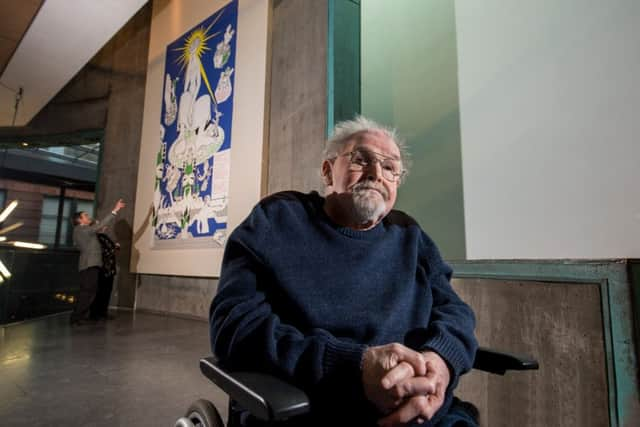Alasdair Gray: ‘Scottish independence turning out as Tory as Westminster’
But Alasdair Gray, a long-standing supporter of Scottish independence, appears to be harbouring doubts about the benefits of a second referendum.
The Glasgow-based polymath and committed socialist claimed he was “disappointed in the way Scotland has taken” when discussing the current political turmoil gripping the UK.
Advertisement
Hide AdAdvertisement
Hide AdIn an interview with the left-leaning Prospect magazine, Gray expressed reservations when the subject of Brexit, and how it could lead to an IndyRef2, was raised.


“That is what I did hope,” he said. “Unfortunately, the independent Scotland — in so far as Scotland has its independence — is turning out as Tory as Westminster.”
Gray has been a vocal contributor to the constitutional debate north of the Border in recent decades. In 1992 he published a short paperback, Why Scots Should Rule Scotland, ahead of that year’s general election. It was revised five years later in time for the referendum on establishing a Scottish Parliament.
In 2012, the artist was described as “anti-English” and accused of fomenting “racism” for using the terms “settlers and colonists” in an essay on independence.
But Gray later said the comments were taken out of context. He explained the colonists were those who arrived to make as much money as they could in furthering their careers and then they cleared out of the country, and his real frustration was with the arts establishment which was “Scotophobic” when it came to appointing Scots to lead cultural institutions.
“I think it is because they think that Scottish artists won’t be as manageable,” the BBC reported in 2013.
Gray, 84, has been unable to walk since injuring himself in a fall in 2015, but continues to work from his tenement flat near the Botanic Gardens in Glasgow.
A collection of his essays, Of Me and Others, was published this year by Canongate.